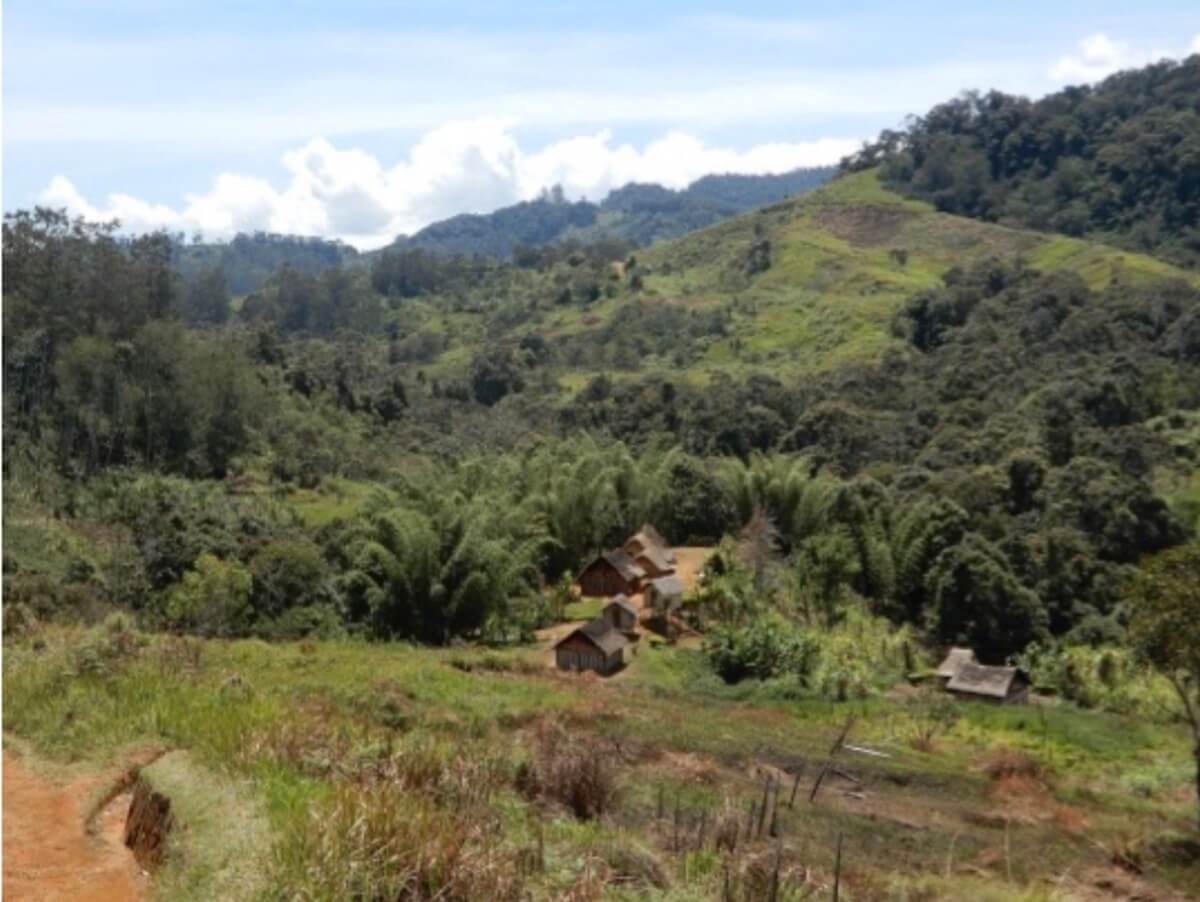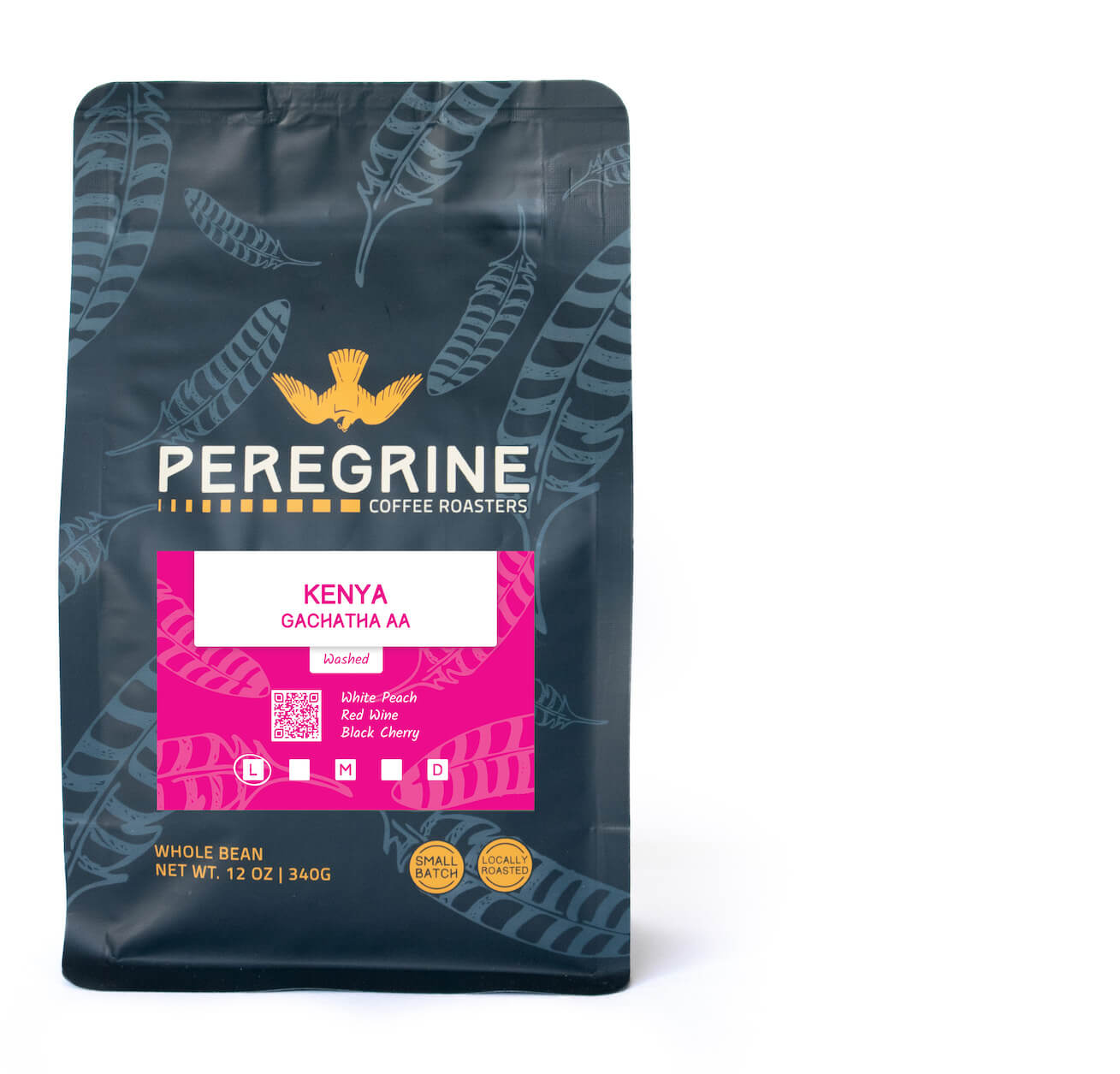
Cupping Notes
We are crazy about Kenyan coffee!
Kenyan coffee is world-famous and for good reason. The coffees produced in Kenya are like no other. To those with a refined coffee palate, Kenya is a dead giveaway. It's obvious you are drinking a Kenyan from the first sip.
That first sip might actually be a dead giveaway because of a particular acid that is prevalent in Kenyan coffees. Due to volcanic soil or some unknown reason, coffees from Kenya are especially blessed with phosphoric acid—moreso than just about any other coffee origin on Earth.
Why is this a dead giveaway? Well, phosphoric acid is a popular flavor additive in soft drinks. It contributes to a "fizzy" or sparkling mouthfeel in coffee. One sip of a Kenyan, and you'll understand just what we mean. The coffee simply feels different in your mouth.
Add in the fact that Kenyans are renowned for their intense (although favorable) acidity, and you're left with a very distinguishable cup.
For the above reasons, coffee from Kenya can be controversial. They do not exist to be people-pleasers in the world of coffee. They exist to be great at what they do—better yet, extraordinary at what they do. Take it or leave it. That's the way Kenya rolls. As far as Kenya is concerned, you can love it or hate it.
So, what will you experience in a cup of this Kenyan coffee? I'm glad you asked!
White Peach. The flavor of peach is unmistakable in this cup. However, it's a bit more nuanced than just "peach" (Isn’t it always more nuanced with us?) There is a juicy fruit note present in a cup of Kenya Gachatha, but it isn't big and bold like a yellow peach. We were most reminded of a sweet and floral white peach at first taste. The flavor is delicate but distinct. This note leads the way for how sweet-tasting this coffee is.
Red Wine. When you taste this coffee, you will immediately notice something “winey.” It is a flavor and mouthfeel that can best be described as dark and deep. There's also a slight tannic aspect to this coffee as in a fermented wine. However, it is more similar to a semi-sweet wine. Stephen thought this coffee was a dead ringer for a Lodi Zin. If that is gibberish to you, a Lodi Zin (zinfandel) is an acclaimed wine from the Lodi area of California. This wine is often described to taste like sweet cherries and blackberries.
Black Cherry. As I noted in the red wine section, wine enthusiasts often compare the flavors found in a glass of red wine to cherries and berries. We thought a cooling cup of Kenya Gachatha most reminded us of black cherries. Black cherries tend to be more purely sweet and spicy than their yellow or red counterparts. There is a cherry tartness that almost resembles a raspberry as well. Again, we found this most prevalent in a cooled cup.
Doesn't that sound delightful? Give it a try!

Farming Notes
This is our very first Kenyan coffee at Peregrine!
This delightful top-shelf Kenyan coffee was secured through our close relationship with Emily Smith at Mercon Specialty. We are again thankful for her help in bringing us one stellar coffee after another.
Kenya Gachatha comes to us from a mill by the same name. Gachatha Coffee Factory (founded in 1963) supports about 1,500 nearby, independent farmers in selling their crops.
Here are more of the specifics from the Mercon team:
“The factory rests on 392-acre on the slopes of the Aberdare Mountain range about 150km North of Nairobi.
Farms in this area grow coffee between 1,800 and 2,100 meters above sea level and take advantage of the deep, fertile volcanic soil common throughout the region and help create the amazing flavors Kenyan coffee is famous for.
They grow SL28, SL34, and Ruiru 11 varieties, and the member farmers deliver ripe red cherry to the factory for processing.
At the factory, the cherries are washed, pulped, and floated to remove defects, and is then fermented overnight to remove the mucilage surrounding the seed. They then dry on raised beds for 7-15 days depending on weather, with sorting and turning happening throughout the process.”
This coffee is sized as an AA coffee from Kenya. AA coffees are typically regarded as among the best coffees the country has to offer, along with peaberries.
We certainly believe the careful attention paid in Kenya translates to an excellent cup of coffee.

